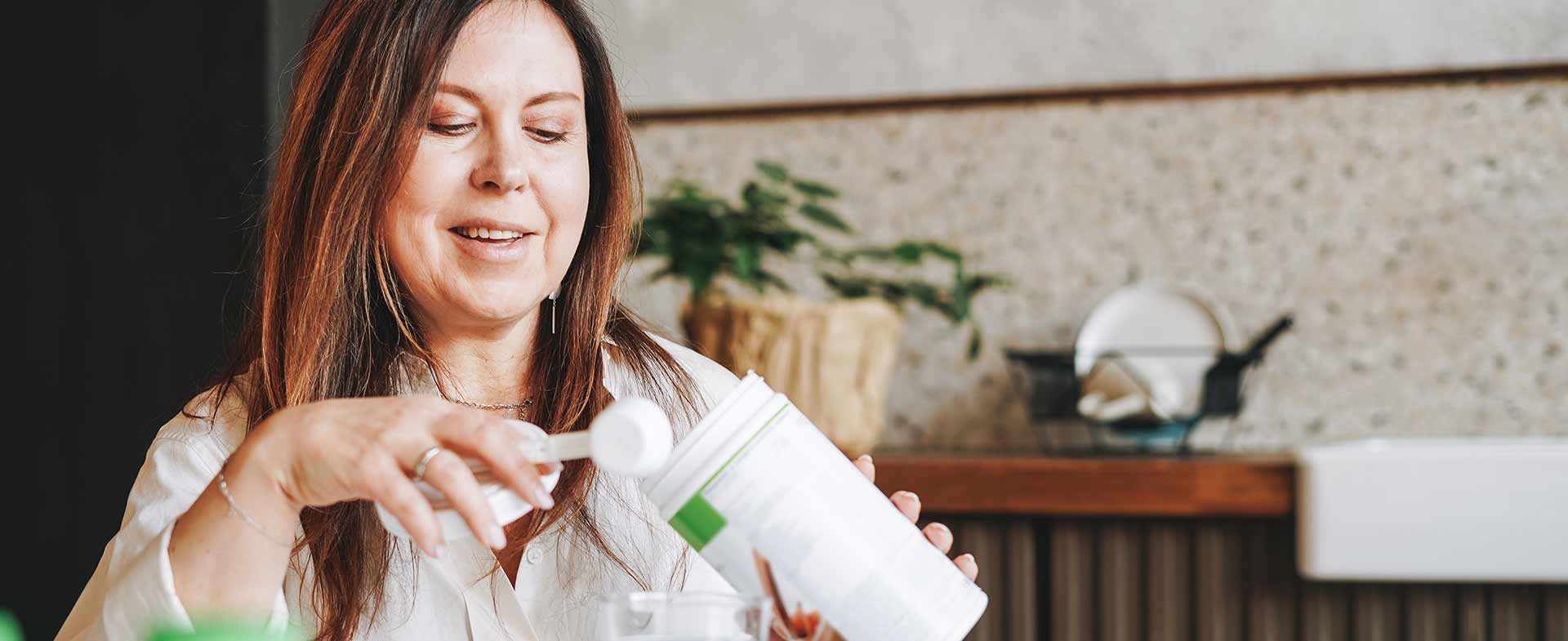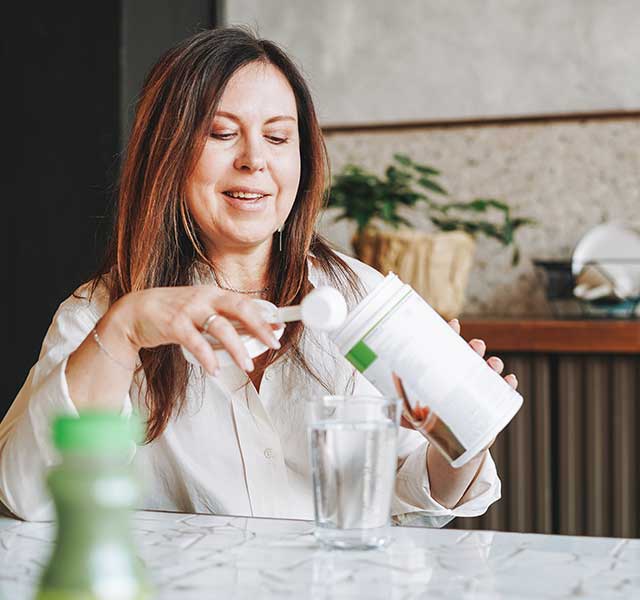Collagen supplements have become increasingly popular in recent years. Manufacturers of collagen powders and capsules claim they make your hair look shinier, your skin young and glowing, your nails strong and your joints pain-free.
“While there may be some benefits to adding collagen to your diet, none of these supplements are a miracle solution,” says Sarah Hutchinson, RDN, a registered dietitian at Henry Ford Health.
What Role Does Collagen Play In The Body?
Collagen is a type of protein that humans and other animals make. It’s the glue that holds a lot of the body’s connective tissues together—such as skin, joints, tendons and ligaments. While it’s not the only protein that makes up connective tissue, it’s a major contributor. “Collagen plays an important role in keeping tissues strong and supported, but still flexible,” explains Hutchinson. And all of the connective tissues throughout your body are made up, at least in part, of collagen proteins.
When we’re young, our bodies produce ample amounts of collagen. All that collagen helps keep skin supple and joints flexible. But age—along with lifestyle habits like smoking, sun exposure and diet—can slow down collagen production. Having less collagen means that some of the tissues that rely on it for support start to break down.
How Does Your Body Build Collagen?

Meet With A Dietitian
Collagen, like all types of protein, is made up of amino acids. “When you eat protein, your body processes it and breaks it down into those individual amino acids,” says Hutchinson. But you don’t have to consume collagen in order for your body to build collagen. “Any protein source will provide your body with the building blocks it needs to make collagen,” she says.
Eating meat or bone broth means you’re also eating collagen. “Dairy and eggs don’t contain collagen, but they do contain all the amino acids needed to replace, repair and build collagen,” says Hutchinson. But even vegans can eat a diet that helps their bodies build essential collagen. Eating a variety of plant-based protein sources—such as beans, soy, legumes and quinoa—means your body will have the amino acids it needs to make collagen.
The key is making sure your diet contains enough protein. General guidelines call for most people to consume 0.4 grams of protein per pound of body weight. So that means if you weigh 150 pounds, you should be getting about 60 grams of protein in your diet every day. Certain people may need more protein, such as athletes, bodybuilders, growing teenagers and people who are pregnant or nursing.
Hutchinson notes that in addition to eating enough protein, make sure your diet also contains plenty of vitamin C. “Your body uses the vitamin C, along with the amino acids, to help build new collagen,” she says. “Without vitamin C, your body cannot make collagen—even if you’re taking collagen supplements.”
Will Collagen Supplements Deliver Real Benefits?
If you want to consume more collagen through diet alone, foods like beef stew and bone broth are the best sources. The collagen is released from bones and meat that are cooked for a long time.
“Taking collagen supplements or using collagen protein powder are very expensive ways to consume protein,” says Hutchinson. “For the average person, supplementing with collagen is completely unnecessary.” Popping a pricy collagen gummy may give you around 2 grams of extra protein, while an egg will provide 6 to 8 grams.
“There are lots of healthy sources of protein that will be much cheaper than taking supplements,” says Hutchinson. Additionally, you don’t always know what you’re really getting when you purchase supplements. “Supplements are not tightly regulated so you need to be careful,” she says.
The bottom line: There’s no guarantee that collagen supplements will provide any anti-aging miracles for your skin, hair or joints. If you want to keep your collagen healthy, eat a balanced, protein-rich diet, avoid smoking and protect your skin from the sun.
Reviewed by Sarah Hutchinson, a registered dietitian for the Center for Health Promotion and Disease Prevention.



